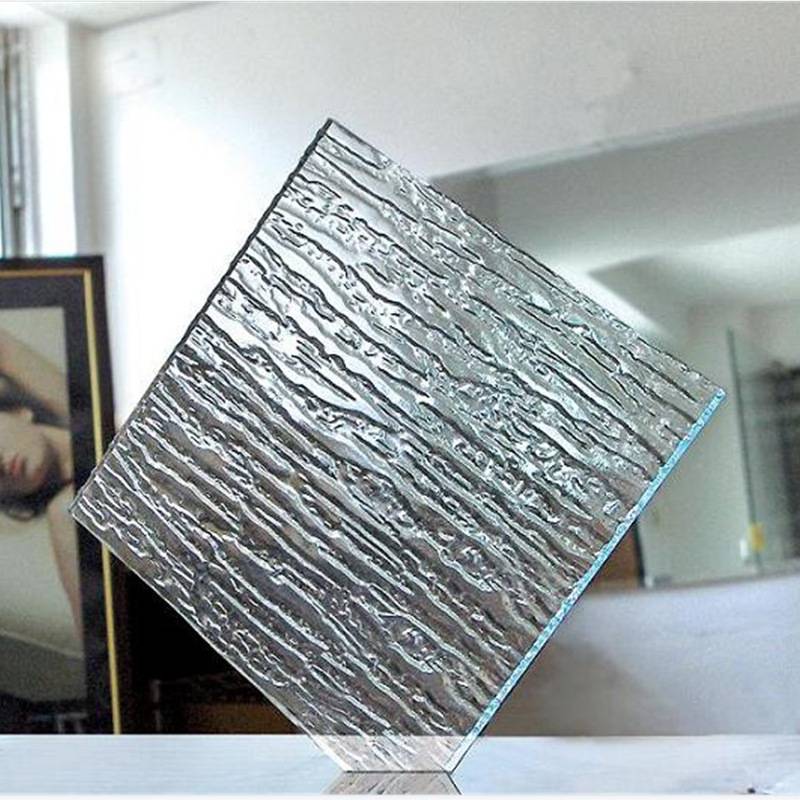Understanding Clear Float Glass A Comprehensive Insight
Clear float glass is a fundamental material utilized in various industries due to its versatile nature and brilliant optical clarity. This article delves into the meaning, production process, applications, and advantages of clear float glass, allowing for a better understanding of its significance in both commercial and residential contexts.
What is Clear Float Glass?
Clear float glass is a type of glass that is manufactured using the float glass process, which involves floating molten glass on top of molten tin to achieve a smooth, flat surface. This innovative process results in a glass product that is clear and uniform in thickness, free from distortions that may arise during traditional glass-making processes. Clear float glass is characterized by its high transparency, which allows for optimal light transmission, and is often used when clarity and aesthetics are critical.
The Production Process
The float glass production process begins with the melting of raw materials, typically comprising silica sand, soda ash, and limestone, in a furnace at temperatures exceeding 1,600 degrees Celsius. Once the materials melt into a molten glass state, it is carefully poured onto a bath of molten tin. The glass floats on top of the tin, allowing it to spread out and form a flat surface as it cools.
As the glass solidifies, it can be cut into sheets of various dimensions based on industry specifications. The resulting product is then annealed in a lehr to relieve internal stresses before being further processed, such as polishing or coating, depending on its intended use. The entire process is designed to minimize imperfections, ensuring that the final product maintains its clear and flawless appearance.
Applications of Clear Float Glass
Clear float glass finds applications across numerous sectors due to its exceptional quality. One of its most common uses is in the construction industry, where it is employed for windows, facades, and glass doors. Architects and builders appreciate the clarity and neutrality of clear float glass, which allows for unobstructed views and enhances the overall aesthetic appeal of structures.
clear float glass meaning
In addition to building applications, clear float glass is widely used in the automotive industry. Windshields and windows made of float glass provide transparency and safety, combining visual appeal with functional durability. The glass is also essential in the manufacturing of mirrors, glass furniture, and decorative items, where clarity and high reflectivity are required.
Another critical area of application is in the electronics and solar industries, where clear float glass is used to create screens for devices and solar panels
. Its light transmission properties are vital for maximizing energy efficiency in solar applications.
Advantages of Clear Float Glass
The advantages of clear float glass make it a preferred choice for various applications. Firstly, its optical clarity promotes natural light flow while maintaining high visibility. This feature is particularly important in residential and commercial properties, where ambient light can enhance interior spaces.
Secondly, the smooth surface of clear float glass is resistant to dirt and dust accumulation, making it easier to clean and maintain. Compared to other glass types, its durability withstands environmental elements, contributing to its longevity.
Moreover, clear float glass is customizable, available in different thicknesses, sizes, and tints to suit specific needs. It can also be enhanced with various treatments such as low-E coatings, which improve energy efficiency by reflecting infrared light while allowing visible light to pass through.
Lastly, the production process of clear float glass is highly efficient and environmentally friendly. The use of abundant raw materials and the recyclability of glass make it a sustainable choice, appealing to environmentally conscious consumers and industries alike.
Conclusion
Clear float glass stands as a prime example of modern material science, combining beauty with functionality. Its applications in construction, automotive, electronics, and design exemplify its versatility and essential nature in today’s world. Understanding clear float glass, from its production to its myriad of uses, underscores the significance of this remarkable material in enhancing both our living spaces and technological experiences. Whether used in a shiny skyscraper or a simple window, clear float glass continues to reflect the light of innovation and design.
 Afrikaans
Afrikaans  Albanian
Albanian  Amharic
Amharic  Arabic
Arabic  Armenian
Armenian  Azerbaijani
Azerbaijani  Basque
Basque  Belarusian
Belarusian  Bengali
Bengali  Bosnian
Bosnian  Bulgarian
Bulgarian  Catalan
Catalan  Cebuano
Cebuano  Corsican
Corsican  Croatian
Croatian  Czech
Czech  Danish
Danish  Dutch
Dutch  English
English  Esperanto
Esperanto  Estonian
Estonian  Finnish
Finnish  French
French  Frisian
Frisian  Galician
Galician  Georgian
Georgian  German
German  Greek
Greek  Gujarati
Gujarati  Haitian Creole
Haitian Creole  hausa
hausa  hawaiian
hawaiian  Hebrew
Hebrew  Hindi
Hindi  Miao
Miao  Hungarian
Hungarian  Icelandic
Icelandic  igbo
igbo  Indonesian
Indonesian  irish
irish  Italian
Italian  Japanese
Japanese  Javanese
Javanese  Kannada
Kannada  kazakh
kazakh  Khmer
Khmer  Rwandese
Rwandese  Korean
Korean  Kurdish
Kurdish  Kyrgyz
Kyrgyz  Lao
Lao  Latin
Latin  Latvian
Latvian  Lithuanian
Lithuanian  Luxembourgish
Luxembourgish  Macedonian
Macedonian  Malgashi
Malgashi  Malay
Malay  Malayalam
Malayalam  Maltese
Maltese  Maori
Maori  Marathi
Marathi  Mongolian
Mongolian  Myanmar
Myanmar  Nepali
Nepali  Norwegian
Norwegian  Norwegian
Norwegian  Occitan
Occitan  Pashto
Pashto  Persian
Persian  Polish
Polish  Portuguese
Portuguese  Punjabi
Punjabi  Romanian
Romanian  Russian
Russian  Samoan
Samoan  Scottish Gaelic
Scottish Gaelic  Serbian
Serbian  Sesotho
Sesotho  Shona
Shona  Sindhi
Sindhi  Sinhala
Sinhala  Slovak
Slovak  Slovenian
Slovenian  Somali
Somali  Spanish
Spanish  Sundanese
Sundanese  Swahili
Swahili  Swedish
Swedish  Tagalog
Tagalog  Tajik
Tajik  Tamil
Tamil  Tatar
Tatar  Telugu
Telugu  Thai
Thai  Turkish
Turkish  Turkmen
Turkmen  Ukrainian
Ukrainian  Urdu
Urdu  Uighur
Uighur  Uzbek
Uzbek  Vietnamese
Vietnamese  Welsh
Welsh  Bantu
Bantu  Yiddish
Yiddish  Yoruba
Yoruba  Zulu
Zulu 

